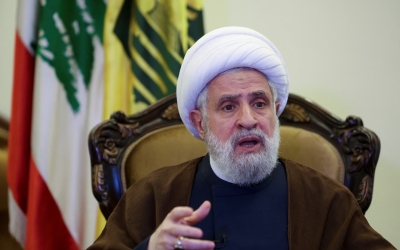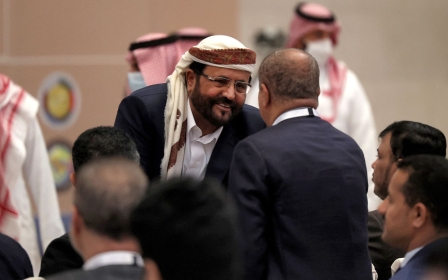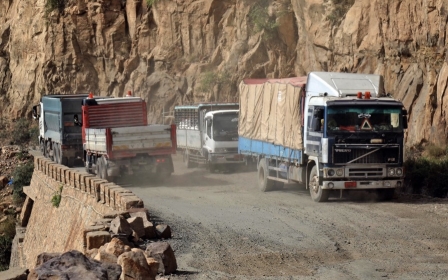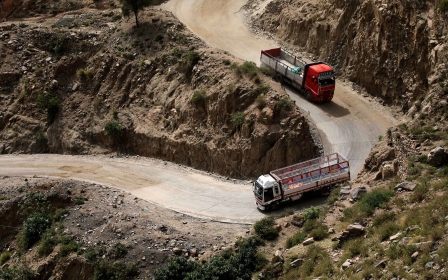Yemen: Three months in, new leadership achieves little amid rising anger
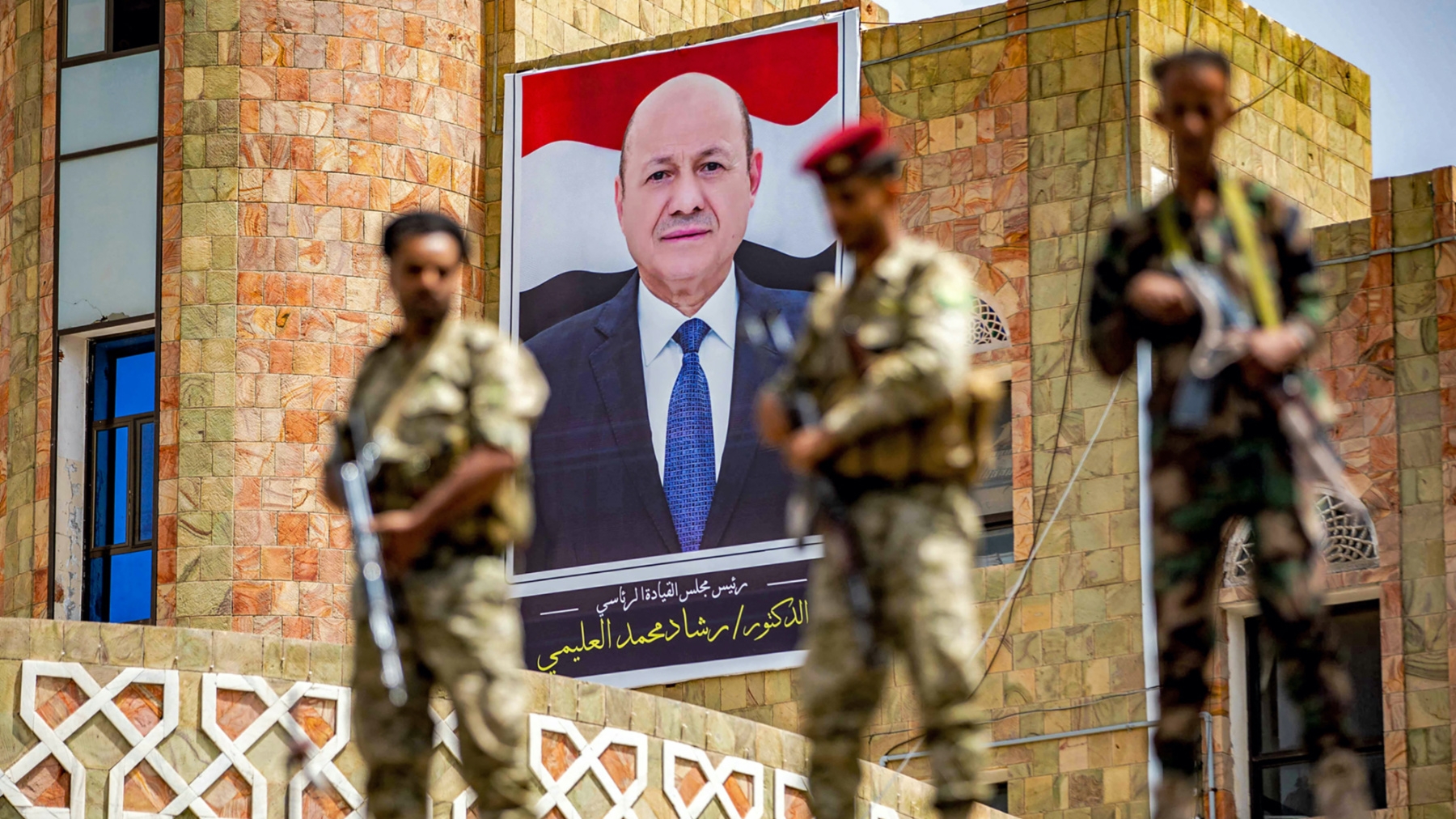
Anger and frustration in southern Yemen has risen in recent days as the country's new leadership has failed to address widespread economic woes, especially rising fuel prices and currency devaluation.
On 7 April, former president Abd Rabbuh Mansour Hadi relinquished power to an eight-member council called the Presidential Leadership Council (PLC). The political shakeup had raised civilians' hope for urgent and practical measures to improve the living situation in areas under the control of the UN-recognised government.
The formation of the PLC was coupled with a pledge of $3bn from Saudi Arabia and the UAE. But in the three months since the council was formed positive changes have been hard to notice in southern Yemen, the stronghold of the Saudi-backed government.
‘A political play’
Furious protesters on Friday took to the street in Ash Shihr district in Hadhramaut province, expressing frustration over the continued deterioration of public services.
New MEE newsletter: Jerusalem Dispatch
Sign up to get the latest insights and analysis on Israel-Palestine, alongside Turkey Unpacked and other MEE newsletters
'Three months should have been enough time for them to fix such problems'
- Yaseen Mohammed, Hadhramaut resident
"I, like many others, expected our new leadership would be capable of resolving several issues, including electricity shortages, skyrocketing prices, and the depreciation of the currency,” Yaseen Mohammed, a 34-year-old resident in Ash Shihr district, told Middle East Eye.
“Three months should have been enough time for them to fix such problems."
With the summer season getting hotter, people are becoming angrier with each power cut, particularly in coastal areas.
Mohammed said he took part in Friday’s protests out of discontentment with the electricity service in his area.
"What happened in April was a political play from which we [the civilians] have not benefited. The performance of the new leadership is disheartening, and it is not that different from its predecessor."
Yemen has been in tumult since 2015, when the Houthi group based in the northern Saada region ran the government out of the capital Sanaa, triggering a destructive civil war.
A military coalition led by Saudi Arabia and the UAE stepped in to restore the government to power and curb the rise of the Houthis. The country is still at war as the Iran-aligned Houthis remain dominant in northern Yemen, while the Saudi-backed government controls the south.
Begging for time
Aden, the interim seat of the government, witnessed angry protests on 20 and 21 June. A rise in the prices of fuel shocked and infuriated citizens, prompting them to take to the streets, block roads and set tyres on fire, in the first display of public disapproval towards Yemen's new Saudi-Emirati-backed leadership.
Faced with disgruntled and impatient southerners, the new leadership has asked the public to wait longer to see tangible reforms.
Rashad al-Alimi, the head of the PLC, wrote in a tweet that he had followed the protests in Aden and understood people's frustrations, and had one demand.
"All I ask from you [the people] is to give us more time to fix the problem and overcome these compound crises,” he wrote.
"The PLC will require the government to carry out its duties differently than it had in the past."
On 6 June, Alimi embarked on a regional trip to Kuwait, Bahrain, Egypt, and Qatar. Addressing Yemen's economic issues was high on his agenda.
Despite the promised support by the four Arab countries, the situation remains bleak, and a number of crises appear to be outside the control of the new leadership.
Around 80 percent of Yemen's population of about 30 million people are in need of some kind of humanitarian assistance for survival, according to the United Nations.
Adel Dashela, a Yemeni political researcher and author, said the delay in delivering the Saudi-Emirati support of $3bn to Yemen has put the new leadership in a difficult position.
"The PLC cannot succeed without the support of the Saudi-led Arab coalition. If the council cannot address service-related issues, how can it confront the Houthi group politically or militarily? The coalition is part of the war and is legally responsible for what is happening in Yemen," Dashela told MEE.
Dashela said the situation in Yemen will further deteriorate unless the PLC and the coalition take sufficient action to secure the minimum basic needs of citizens in Houthi-free areas.
Fading optimism
Amjad Salem, a 29-year-old resident in the Khur Maksar district of Aden, told MEE that the latest protests in Aden would not be the last should the new leadership fail to launch "genuine reforms".
'The Yemeni riyal is collapsing again. Commodities and fuel prices are soaring. This is clear proof of how ineffective this new leadership is'
- Amjad Salem, Aden resident
"The Yemeni riyal is collapsing again. Commodities and fuel prices are soaring. This is clear proof of how ineffective this new leadership is. We will take to the street once again if this suffering continues," said Salem.
On Sunday, Yemenis nationwide were dealt a heavy blow when the United Nations' World Food Programme (WFP) announced that it has further reduced rations in Yemen due to inadequate funding.
The food aid reduction and incompetent local authorities are a recipe for further humanitarian misery.
Salem had initially been optimistic about the formation of the PLC and the promised financial support in April. He now admits that his optimism has faded.
"I cannot mention any improvement in any public service here [in Aden]. The only difference is the halt of infighting between the separatist fighters and government forces,” said Salem.
“This little achievement is not enough to remedy our problems.”
Middle East Eye delivers independent and unrivalled coverage and analysis of the Middle East, North Africa and beyond. To learn more about republishing this content and the associated fees, please fill out this form. More about MEE can be found here.


